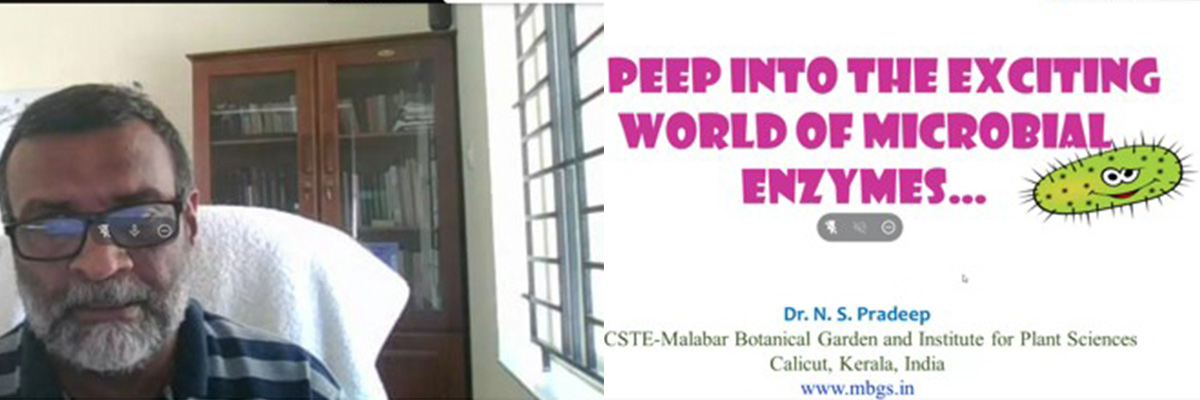
The Department of Biotechnology, Nehru Arts and Science College has organized One day webinar on “A peep into the exciting world of microbial enzymes” on 07/11/2020. The program was inaugurated with the welcome address by Dr. R. Vijayaraghavan, Head of the Department, Department of Biotechnology, NASC. The presidential address of the program was delivered by Dr. B. Anirudhan, Principal, Nehru Arts and Science College. Technical Session was initiated with the talk by Dr. N. S. Pradeep, Senior Scientist, KSCSTE – Malabar Botanical Garden & Institute for Plant Sciences , Kozhikode, Kerala. Following the technical session and presentation by the resource person, the session was concluded with a vote of thanks.
Microbial enzymes find applications in many fields, including chemical, fermentation, agricultural, pharmaceuticals, and food production. Choosing the appropriate expression systems is important for the enzyme production rate, and bacteria, filamentous fungi, and yeasts have been used to express recombinant enzymes. Biotechnological applications have increased in number due to the advantages of these species. However, physiological impacts make high-level expression of recombinant enzymes hard to achieve. The natural enzymes, especially under industrial conditions, have limitations such as low catalytic efficiency, activity, and stability. Strategies such as site-directed mutagenesis, truncation, and terminal fusion have been used to eliminate these limitations. The session was so informative and interactive as the students expressed their involvement throughout the program and gave good feedbacks.
Outcome of the Event
Microbial enzyme production concentrates on simple hydrolytic enzymes (proteases, amylases, pectinases) that degrade natural polymers such as proteins, starches, or pectin. The microorganisms secrete the enzymes into their nutrient medium to make better use of it. These extracellular enzymes break up the giant molecules of the substrate into smaller ones that can feed the microorganisms. Uses of microbial enzymes in food, pharmaceutical, textile, paper, leather, and other industries are numerous and are increasing rapidly. Most of the industrially important microbial enzymes, with two major exceptions at present, are hydrolases, which catalyse the hydrolysis of natural organic compounds.
Microbial enzymes have long been used by industrial product makers as major catalysts to transform raw materials into end products. Over 500 commercial products are made using enzymes. They are economically produced by different microorganisms and are quickly broken down when they have done their job. New technical tools to use enzymes as crystalline catalysts, for ability to recycle cofactors, and engineering enzymes to function in various solvents with multiple activities are important technological developments, which will steadily create new applications.